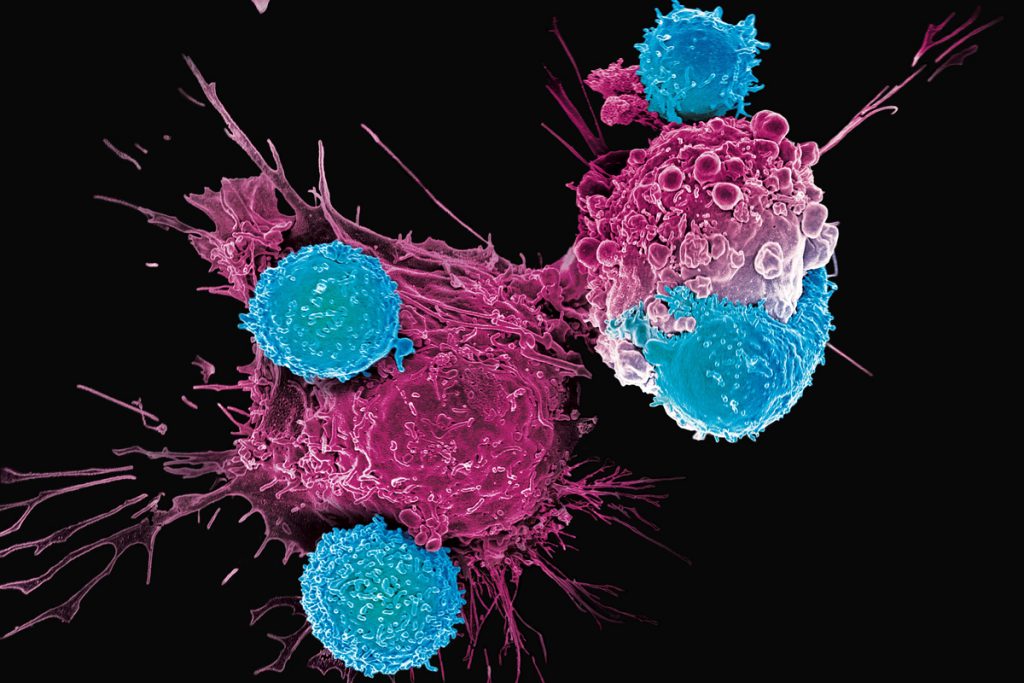Understanding Immunotherapy
Your immune system is made up of cells that act as an internal army, looking for and destroying infection-causing antigens such as viruses, bacteria, and parasites.
Sometimes, the immune system can even detect cancer cells, although this is challenging as cancer cells often resemble normal cells.

In order to help the immune system target cancer cells and fortify their defenses against them, many doctors rely on immunotherapy.
Understanding Immunotherapy
Immunotherapy, also known as biologic therapy or biotherapy, uses your own immune system to fight certain types of cancer such as melanoma, lymphoma, leukemia, and multiple myeloma.
Also, patients with breast, colon, bladder, lung, kidney, and prostate cancers often find success in immunotherapy.
It was a New York surgeon, Dr. William Coley, who first noticed that certain infections healed a select number of cancer patients in the late 1800s. Dr. Coley treated these patients by infecting them with bacteria, now called Coley toxins. Some success followed but was pushed aside with radiation therapy which gained more clinical notoriety. However, doctors now have a better understanding of the capabilities of the immune system and how it eliminates cancer cells, and this knowledge has led some back to continue on with immunotherapy treatments.
Immunotherapy treatment repairs stimulate and enhance the immune system. It offers man-made immune system proteins – as well as other immune system components – to stimulate the immune system. Specifically, immunotherapy suppresses cancer growth, promotes cancer cell recognition, and encourages the body’s natural capacity to mend or replace cells that have been injured by other treatments.
What types of Immunotherapy exist today?
There are a number of immunotherapy treatments. Some strengthen the immune system when they’re in the body while others train the immune system to attack specific cancer cells, preventing growth, or eliminating them altogether.
Biological Response Modifiers — These modifiers trigger the immune system to indirectly upset tumors.
Cancer Vaccines — These stimulate the immune system’s reaction to certain infections often preventing or treating cancer.
Tumor Vaccines — These vaccines are injected into the body and are designed to both prevent cancerous cells from returning and to reject tumors. This treatment continues to be tested in clinical trials.
Non-specific Immunotherapies – General in nature, these immunotherapies boost the immune system against cancer cells.
Colony-Stimulating Factors — This substance stimulates blood cell production which supports the immune system during cancer treatment.
Monoclonal Antibodies — Although these proteins are manufactured in a lab, they can successfully target a specific portion of a cancer cell. This type of treatment is used to fight the cancer cells which cause lymphoma and breast cancer.
The type of immunotherapy is customized to each patient, and it is often given in conjunction with other treatments such as surgery, radiation therapy, and chemotherapy. To ease patient discomfort and aid in recovery, many doctors also advocate for nutrition therapies, oncology rehabilitation, pain management, mind-body medicine, naturopathic medicine, and spiritual or community support.
Understanding Immunotherapy and its side effects
Like any medical treatment, immunotherapies can produce side effects. They vary in nature from one patient to the next but often resemble flu symptoms.
• Bone pain.
• Chills.
• Nausea.
• Rashes or swelling at injection sites.
• Serious allergic reactions.
• Fatigue.
• Changes in blood pressure.
• Fever.
• Loss of appetite.
• Muscle aches.
• Vomiting.
• Diarrhea.
• Headaches.
Did this article get you understanding immunotherapy?


